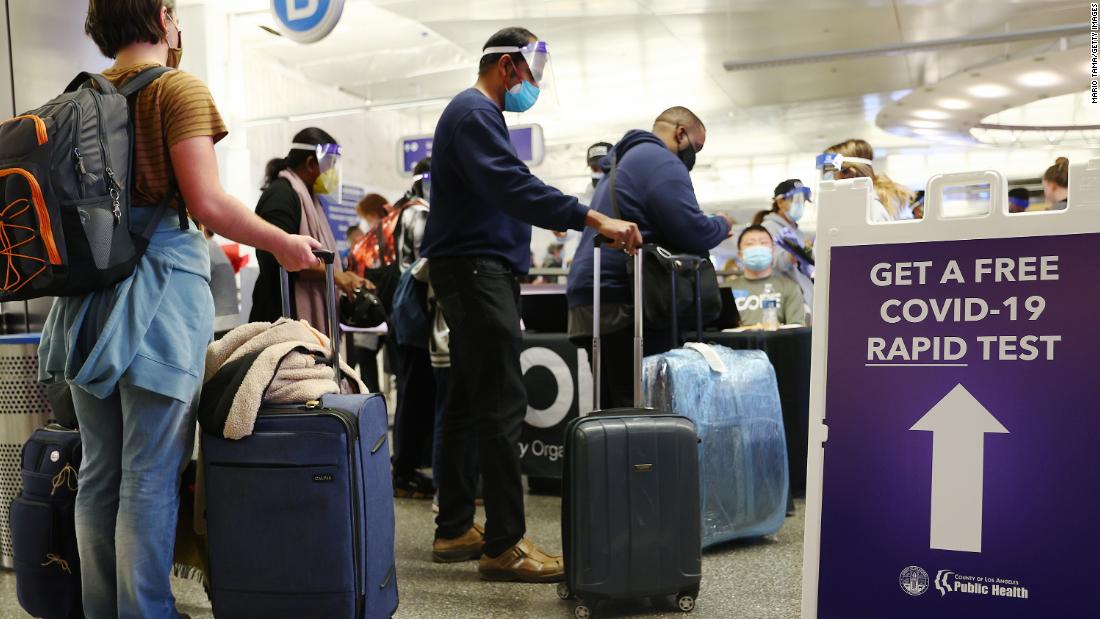To understand where we are, and where we are going, it's helpful to understand the science behind Omicron, and the speed at which we can expect answers.
The discovery of this variant is impressive, in and of itself. It was identified when South African scientists who were conducting regular surveillance
saw an uptick in Covid-19 cases in Gauteng Province. They genotyped incoming tests in only 36 hours, quickly identifying the dozens of mutations that are putting the public health community on edge. This speed of genetic sequencing was largely unheard of prior to the Covid-19 pandemic. The world should feel indebted to the scientists at the Network for Genomic Surveillance in South Africa and privately owned Lancet Laboratories.
But the genetic sequence is only the first step. As humans know well, our genetic sequence is not the only thing that determines how we look and how we work. So we need to do more work to figure out
answers to the questions that really matter about the Omicron variant. This takes time and isn't easy.
The next big question we are trying to answer is: How easily does this new variant spread, or, in science-speak, how "transmissible" is it? Do the mutations actually help it "stick" to the airway more easily, or replicate more effectively?
This question matters because if a virus spreads easily, it gets more people sick -- especially if they're unvaccinated, unmasked, or have waning immunity. (
This is what made the Delta variant so bad.)
Transmissibility in some ways seems the easiest to figure out: we think of
this as old-school, gumshoe epidemiology, in which we contact trace, count the number of people who get ill and figure out their characteristics, and then -- as we accumulate cases -- start to approximate the reproduction number. But the
best estimates rely on other things too (like social density), as well as our own behavior (like mask-wearing).
Scientists are hard at work at getting this information, but accurate data takes time, and we should expect that our estimates will continue to change. For now, we're watching the speed of spread in South Africa and elsewhere to calculate a back-of-the-envelope estimate. It's not looking good. One
preliminary model suggests that Omicron
spreads twice as easily as the Delta variant. This is the reason that many of us scientists are warning people to mask up in public and go get their booster. We want to stave off the spread if the real numbers are close to what the
initial calculations suggest.
We also want to figure out whether Omicron makes people sicker than the prior variants. This question may not be answered for months, because the severity of illness is
influenced by so many things -- who is getting infected, how overwhelmed the local hospital system is, the prevalence of vaccination and prior infection, and whether mildly symptomatic people are getting tested.
Six months after its discovery, we are still
debating whether the Delta variant makes people sicker. But we obviously can't wait months to make decisions about what to do. So we have to act "as-if," for now. This is why President Joe Biden announced
new measures on Thursday, including actions to ensure more American adults get their booster shots and more kids ages 5 to 11 get the vaccine, an expansion of free at-home testing, and others. I'm hoping that more will come.
Which leads me to the biggest unanswered question that most of us have: How well do our Covid-19 vaccines protect us from Omicron. This answer, too, will change over time. Current analyses are complicated by the fact that most people in Southern Africa -- where community spread has been identified -- are
unvaccinated, thanks to continued
vaccine apartheid, which describes the institutionalized racial segregation that existed in South Africa for almost 50 years. Therefore, it becomes more difficult to sort out vaccine efficacy. Unfortunately, this setting -- where many have already been infected with other variants -- also permits us to examine whether prior infection protects from the Omicron variant. So far, the
signs are that it may not. In other words, get your first doses of the Covid-19 vaccine, if you haven't already. And then get your booster, if you can.
So where does that leave all of us -- including me -- as we get ready for the holidays?
While we wait for data, basic protective measures are still your best bet. All signs point to the fact that the same old strategies (masks in public indoor places, rapid testing, ventilation and, of course, vaccines) are still the most important in stopping the spread of this airborne virus. Plus, the Delta variant is still among us representing 99.9% of the daily cases in the US, and these safety measures work to protect us well from Delta.
Additionally, if you live in a region of the world where vaccines are easily available, now is the time to
get a booster -- any booster -- to increase your chance of fighting off the new Omicron variant.
If you're fully vaccinated and were planning on holiday trips, it's honestly too soon to give definitive advice. I am advising folks to look into their options for cancellation, but not to put the kibosh on that family gathering just yet -- assuming that everyone has received at least their first series of the vaccines.
Here's my final advice. None of us anticipate a return to 2020-style lockdowns. We have much more to prevent and
treat the virus now. But bear with me -- and with the other scientists, doctors, and public health professionals -- as we try our best to walk the line between expecting the worst and hoping for the best. Advice may change, but we're doing the best we can, as quickly as we can.
After all, we all were looking forward to a more normal holiday season, too.

No comments:
Post a Comment